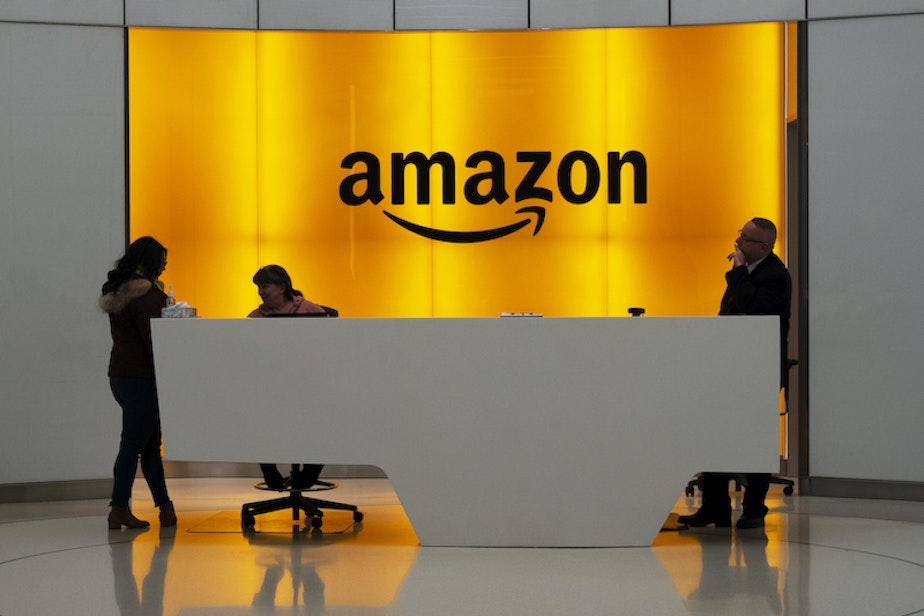Amazon defeats shareholder proposals. Advocates claim victory anyway.

There was a lot on the table at Amazon's annual shareholder meeting Wednesday, everything from working conditions at Amazon warehouses and the company's use of plastic packaging to its gender and racial pay gap and use of facial recognition technology.
Even though all the proposals were rejected by investors, advocates said even having those issues discussed was a victory.
This year’s meeting was unusual because a record number of shareholder groups – 15 of them – forced votes on proposals that would change the way Amazon does business.
One at a time, shareholder-advocates had two minutes apiece to make their case.
Daniel Olayiwola posted a musically-backed video online earlier this month previewing his presentation to shareholders about working conditions in Amazon’s warehouses.
“Hello my fellow shareholders," he said. "Everyday I’m overwhelmed by anxiety when thinking about going in to work and feel like I’m stepping into a sweatshop.”
Other proposals presented at Wednesday's meeting sought to study Amazon's use of plastic packaging, its gender and racial pay gap and its use of facial recognition technology. A conservative group sought more transparency around Amazon's charitable contributions.
Amazon advised investors to reject the proposals, saying the company was already working on these issues. None of the proposals passed.
But advocates said even having the items on the ballot brought important scrutiny to their chosen topics.
Sarah Couturier-Tano works for an organization called SHARE, which stands for Shareholder Association for Research & Education.
Her group backed a proposal asking Amazon to examine how it treats workers who are trying to organize unions.
“We’ve done a great job at communicating on this issue and we hope that the board and the management will be responsive,” she said.
This year, Couturier-Tano said shareholder proposals appear to have gotten some support from a handful of institutional investors, which she described as a triumph. In the coming days, she said she would be watching vote results to see how broadly her organization's message resonated.




